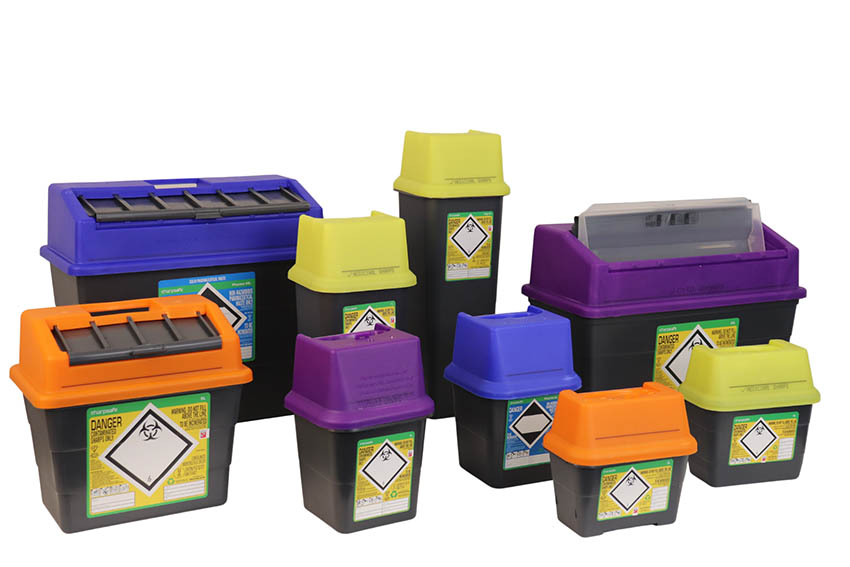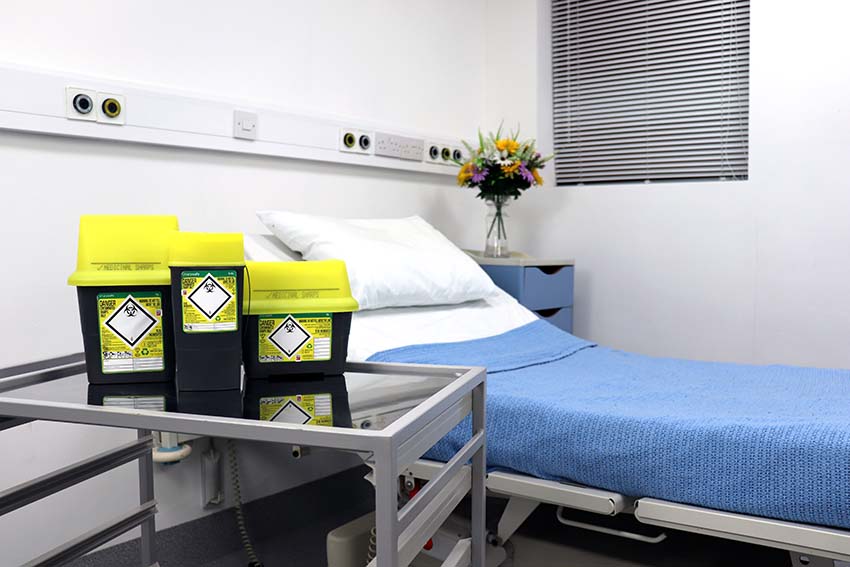Sharpsafe is a company pioneer in clinical waste management systems, inventing the first purpose designed sharps container in 1979. As pioneers in the clinical waste disposal industry, Sharpsafe has introduced and championed pivotal changes to minimise the risk of sharps injuries in over twenty-two countries. Annually, their state-of-the-art manufacturing facility in South Wales produces over 22 million containers, achieving the highest levels of industry accreditations.
Interview with Jenna Davies, Product Marketing Executive at Sharpsafe.
Easy Engineering: What are the main areas of activity of the company?
Jenna Davies: Sharpsafe are industry experts in Clinical Waste Management, producing the complete solution for their customers clinical waste needs.
E.E: What’s the news about new products?
J.D: In 2022 Sharpsafe launched their 5th Generation containers – the world’s first full range of sustainable single use containers. The new range made a ground-breaking change to grey material away from the traditional yellow of sharps containers. This industry first meant that up to 100% recycled material could be used in the bases of the container without any compromise to quality.

E.E: What are the ranges of products?
J.D: Offering a full range of Sharps containers from 0.2L – 30L to fit all clinical and home settings. Combined with the NPSD (Near patient safe disposal) system a strategy to minimise the risk of sharps injuries consisting of a variety of accessories such as stands, trolleys and trays to dispose of sharps at the point of use. Finally, Sharpsafe offer Clinisafe products in both a plastic and cardboard, so all clinical management needs are met and ensure effective segregation of clinical waste.
E.E: At what stage is the market where you are currently active?
J.D: Sharpsafe are European leaders through collaboration with our long-term partner Hospidex.
E.E: What can you tell us about market trends?
J.D: Globally there has been a shift to be more aware of the impact organisations and individuals have on the carbon emissions they produce. Healthcare has one of the largest carbon footprints, through the need to use single-use products to prevent the spread of infections. There has been a focus on making single-use products as sustainable as possible. Procurement managers in healthcare are putting more emphasis on sustainability, asking for life cycle analysis and the carbon footprints of products their procure.

E.E: What are the most innovative products marketed?
J.D: Sharpsafe’s 5th Generation Containers made the ground-breaking switch to grey material in 2022. This innovation meant a 94% reduction in carbon footprint, when compared to the yellow virgin 4th generation container. A simple switch in the colour of the material has meant a huge benefit to the environment, helping healthcare facilities reach their sustainability targets.
E.E: What estimations do you have for 2023?
J.D: In 2023, Sharpsafe are developing and re-evaluating the current range of products available to rationalize the range available looking to make more sustainable improvements through improved product design. Sharpsafe are looking to explore new markets to utilise their innovative products to help minimise the risk of sharps injuries for healthcare workers and their patients.
